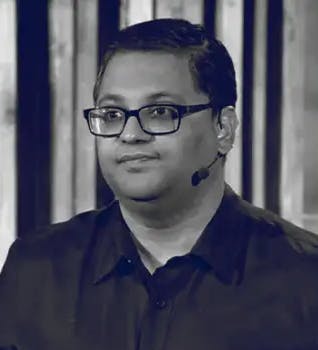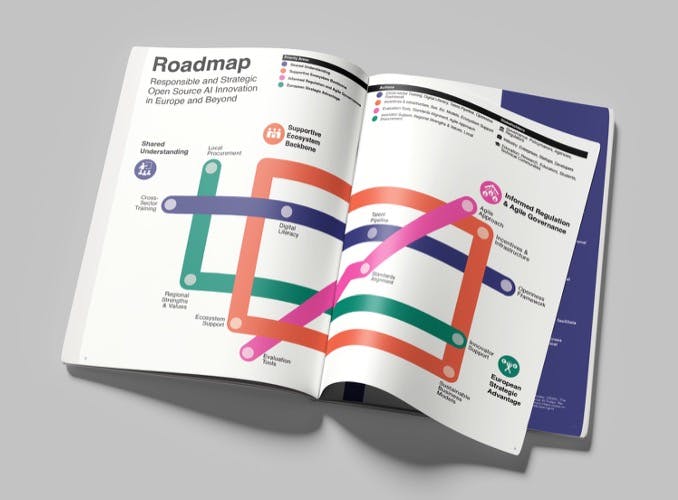• Full name: Supratik Mukhopadhyay
• Title: Professor and AI Faculty Fellow (Office of Data and Strategic Analytics) LSU
• How long you/your company has been a member of AI Alliance: Since November 2024
• Favorite quote: Life is short. So if you think at all, think big.
Tell us about yourself and what you are responsible for at your company?
I am a full professor at LSU and an AI faculty fellow at the Office of Data and Strategic Analytics. I am also a fellow of LSU's Coastal Studies Institute. I lead a team that was one of the semifinalists at the AI XPRIZE. I am currently leading a team that is one of the top 20 teams worldwide at the Wildfire XPRIZE. At LSU, I use AI to solve problems in drug discovery, histopathology, climate change, agriculture, building and transportation, and education. I have also developed and have taught a course on Environmenal Impacts of AI. In addition, I have co-founded a startup, Electric, that uses video analytics and computer vision for forestry applications. I serve as an associate editor for IEEE Transactions on Artificial Intelligence.
Why did you and/or your organization join AI Alliance?
As an SEC member and the flagship university of the State of Louisiana, LSU has been in a unique position to undertake open innovation. LSU President's scholarship first agenda calls for providing pathways to higher learning, addressing critical problems through ground-breaking research and discovery in the verticals of Agriculture, Biomedical and Biotechnology, Coast, Environment, Climate Change, Sustainability, Defense and Cybersecurity, and Energy. AI has become a crucial tool that can transform all these verticals.
LSU intends to collaborate with AI alliance members through the development, evaluation, and deployment of safe, responsible open-source AI models (including foundation models) and tools and releasing benchmark datasets for countering climate change (e.g., climate-smart agriculture, nation-wide AI-based flood and wildfire risk maps, etc.), ensuring affordable and timely healthcare delivery (e.g., advanced AI models for medical diagnosis), personalized education, and smart and sustainable energy systems. LSU will benefit from such collaborations through the exchange of know-how with respect to training, evaluation, and safe and responsible deployment of large AI models on high-performance computing infrastructures. In addition, LSU researchers can collaborate with those members of the AI Alliance to develop open-source research projects that can transform several of the target verticals mentioned above.
What's a project you're working on right now? Why is it meaningful to you?
The first project is on education. College Algebra has been known to offer significant challenges for many freshmanstudents across US academia, resulting in consistently high DFW (drop, fail, withdraw) rates over the years. A critical aspect of these challenges lies in students' difficulty understanding threshold concepts in College Algebra—fundamental building blocks essential for success in the subject. A major contributor to this sad state of affairs as far as Math education at the college freshman level goes is the way the courses are taught. Traditional beginner lectures emphasize symbol manipulation, memorizing abstruse formulas, and solving fabricated exercises and examples without any relation to the real world.
To address these issues, we are developing Hypermath, an AI-driven visual algebra problem-generation tool that provides students with a meaningful understanding of key threshold concepts through deliberate practice. Hypermath can (1) generate problems on demand for a chosen topic and a problem type, (2) present the problem to the student in a gamified manner together with an animation of a real-world scenario illustrating the problem and providing visual cues to the student, (3) explain a concept needed to solve a problem with real-world examples and animations on demand, (4) graphically explain abstract concepts, problems, and solutions, (5) allow a student to enter a solution to a given problem step by step, (6) check every step of a student's solution for accuracy providing feedback with explanations, and (7) provide hints to a student if they are stuck.
Another project that I have been passionate about is AI-driven therapeutics discovery. Despite significant progress, recent years have seen extensive research aimed at finding therapeutics for incurable diseases. Millions worldwide suffer from conditions that require new and more effective therapies. The prolonged and widespread use of antibiotics has fostered drug-resistant infections, diminishing the efficacy of existing treatments. As antibiotic resistance escalates, the pace of developing new antibacterial drugs has dropped dramatically. This situation creates an urgent demand for innovative approaches to discover novel antimicrobial agents. Traditional therapeutics development methods are slow, inefficient, and expensive. To overcome these challenges, we have developed Deep Drug—an AI-driven drug design pipeline that analyzes enormous datasets to pinpoint potential new therapeutics, significantly accelerating drug discovery while cutting development time and costs.
How does AI Alliance mission align with your organizations core values?
LSU's values perfectly align with those of the AI Alliance. Open innovation, open science, and open source are central to LSU's mission. LSU strives to provide an open innovation ecosystem for students, faculty, staff, and other stakeholders. Through sharing data, research, and educational resources, LSU positively impacts the State of Louisiana, the nation, and the world. I have started working with the AI Alliance to create an open repository of datasets in the areas ofenvironmental sciences and drug discovery.
What about an open approach to AI innovation inspires you?
AI has become a crucial tool that can bring a paradigm shift in almost every vertical. For rapid advancements, it is imperative that researchers build "on the shoulders of giants." An open approach allows leveraging the intellectual endeavors of a diverse group of people. It fosters a transparent and collaborative ecosystem where results can be validated and reproduced by colleagues, and the entire society can benefit through democratized access to technology.
What's next on the horizon for your organization?
Funded by LSU's Institute for Energy Innovation, we are developing an AI-based automated decision support model for creating wide-area heatmaps showing sites suitable/unsuitable for safe CO2 injection, along with numerical scores and possible explanations. Among the negative emissions technologies aimed at cutting greenhouse gas emissions and reaching the coveted goal of carbon neutrality, Carbon Capture, Utilization, and Sequestration (CCuS) stand out for their exceptional efficiency and scalability. For CCuS to succeed, choosing safe and reliable CO2injection sites is important.
We are also actively working on developing an AI-based platform focused on human wellness. The platform will be able to provide personalized wellness recommendations, such as diet, exercise regimen, nutraceuticals, etc.
Where might we see you next and how can the AI Alliance community get in touch with you?
I attend as many AI Alliance virtual meetings as possible. I also plan to attend some of the in-person meetings, especially the drug discovery working group.


